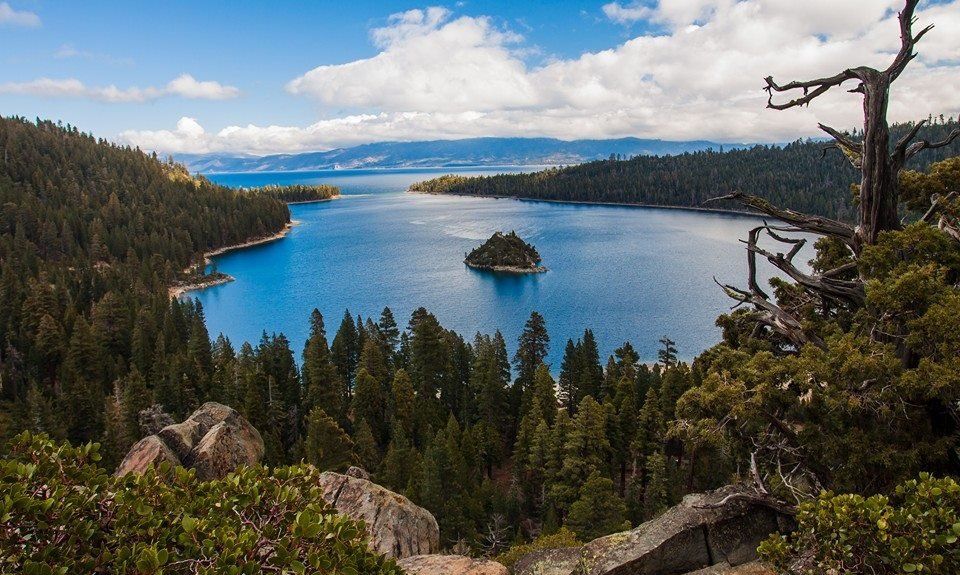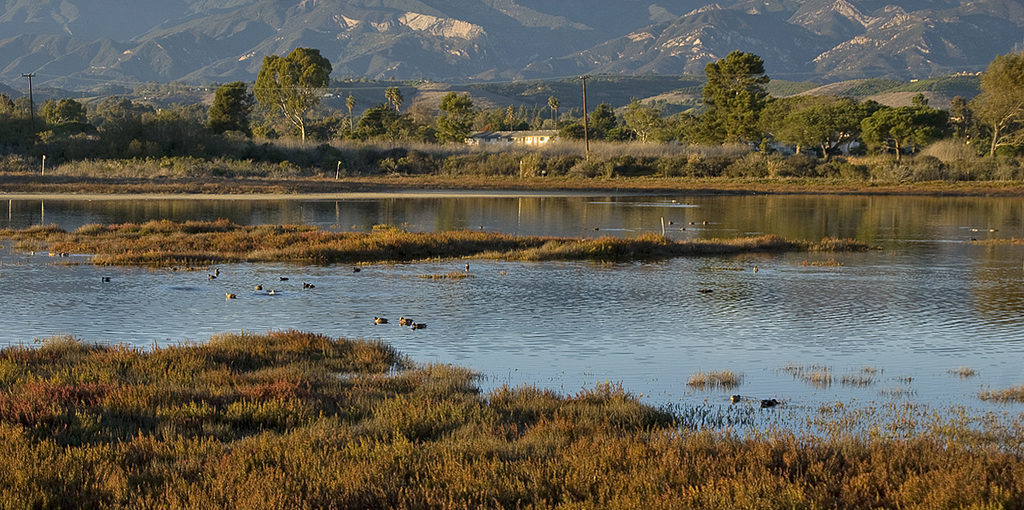California has a paradoxical history with its environment. On one hand, the state boasts incredible natural beauty, along with a government that is an internationally recognized leader for strong environmental policies. But the state’s residents have also caused severe environmental destruction, particularly in the late nineteenth century — some of which helped spur the mobilization that led to these environmental successes.
Looking at California’s history, what were some of the most striking examples of environmental destruction? To qualify for this “Top 10” list, the destruction had to be irreparable (at least in anyone’s lifetime) and of a uniquely beautiful environmental feature (landscapes and plants). Of note, animals are not included, nor is an assessment of the economic trade-offs or alternatives.
10. Quarrying Morro Rock
Morro Rock is California’s Gibraltar, a striking coastal feature just north of San Luis Obispo on Morro Bay. It’s a remnant, exposed rocky volcano, visible from miles away. The local Chumash tribe consider it a sacred site (named Lisamu) and have special access to the top for religious ceremonies. But half of the side of the rock was quarried from 1889 to 1969 to form the bay breakwater, leaving a massive scar.
9. Draining the Owens Valley and Mono Lake

The Owens Valley is a remarkable north-south valley created by fault separation along the eastern Sierra Nevada mountains. Just past the northern end of the valley lies Mono Lake, an ancient salt-water body of water. In the early 1900s, Los Angeles city leaders surreptitiously purchased land and water rights to direct the Owens river, and eventually the streams supplying Mono Lake, into aqueducts to service Los Angeles real estate development. The result was a shrunken Mono Lake and desiccated Owens river valley and lakebed, creating toxic duststorms and economic and environmental blight in the region.
8. Channelizing the Sacramento-San Joaquin Bay Delta

The Delta sits between California’s Central Valley and San Francisco Bay, draining most of the water from the interior of the state to the Pacific Ocean. It is one of the largest estuaries in western North America, once featuring a vibrant ecosystem with rich soil. Chinese laborers were employed to build levees between the 1850s and 1870s to dam and farm the land. Today, these levees are at constant risk of collapse, jeopardizing much of the state’s water transfer system from north to south, while much of the Delta ecosystem is in a state of freefall.
7. Clear-Cutting the Sierra and Lake Tahoe Pine Forests

The Sierra Nevada mountains used to be blanketed in old growth pine forests, which included trees the size and age of giant sequoias in some cases. But in the mid- to late-nineteenth century, much of the mountains, including the entire Lake Tahoe basin, was clear cut largely to build underground silver mines in neighboring Nevada. Today, the resulting second-growth forests of clumped juvenile firs and pines creates a fire-prone jumble that forest officials are struggling to manage properly. You can still see the original old-growth pines only in places like DL Bliss State Park along Lake Tahoe, ironically preserved by one of the industrialists who profited from the logging in the first place.
6. The Los Angeles Freeway Embrace

The City of Los Angeles is ringed by semi-arid mountains, distant snow-capped peaks and a long coastline featuring wetlands, coastal bluffs and sandy beaches. Yet in the middle of the twentieth century, city and state leaders enabled the paving of much of this landscape via the construction of multiple large freeways, starting with the Arroyo Seco Parkway in Pasadena, the first freeway in the country. This automobile network induced significant traffic congestion and sprawling development that to this day generates a substantial amount of air pollution, despite efforts to retrofit the city back to a Railtown.
5. Damming Hetch Hetchy Valley

Hetch Hetchy is a rare glacial-carved valley within Yosemite National Park in the Sierra Nevada, featuring a meandering Tuolumne River and similar in scale and beauty to the more-famous Yosemite Valley to the south. San Francisco water engineers at the turn of the last century sought to dam this bathtub-shaped valley to bring mountain water to the groundwater-challenged San Francisco peninsula. Over the objections of John Muir and the Sierra Club, the federal government and San Francisco officials approved the dam, flooding and permanently marring this geologic wonder.
4. Logging Giant Sequoias

Giant sequoia trees can live up to three thousand years and grow to become the largest living things on Earth. California’s western Sierra Nevada mountains host the last remaining 77 groves on Earth. In the late 1800s, Californians chopped down about one-third of them. Worse, most of the wood from the trees would shatter on impact with the ground, so these residents could only use the wood for building fences or manufacturing shingles.
3. Wetlands Destruction

California once boasted over 4 million acres of wetlands, out of 163 million in the state, from coastal lagoons to Central Valley floodplains. These lands featured abundant bird and aquatic life, among other features. But 90 percent of them were destroyed by river damming and channelization. Today, what remains hosts 55% of the state’s endangered species, with much of those lands now irreparably lost to farms, cities and sprawl.
2. Clear-Cutting Old-Growth Coastal Redwoods

Coastal redwood trees grow to be the tallest living things on Earth and can live up to two thousand years. They are located along California’s coast up to the Oregon border. But starting in the mid-nineteenth century through the 1980s, loggers cleared 95% of the original old growth forests. Once cut, new trees may quickly grow up in a ring around the old stump but resemble toothpicks compared to the originals. To view what was lost, you can visit Muir Woods 12 miles from San Francisco, Big Basin Redwoods State Park near Santa Cruz, or Redwood National Park near the Oregon border.
1.Hydraulic gold mining

In the mid-1800s, mining companies discovered that they could harvest gold from the Sierra Nevada foothills more easily if they blasted the rock with high-pressure water. In a few short years, these companies denuded and deformed much of the Sierra foothills, sending debris into the Central Valley and mercury pollution into the San Francisco Bay, where it still sits today. A federal judge stopped this type of mining in the 1884 decision Woodruff v. North Bloomfield Gravel Mining Company, in order to protect agricultural land in the Central Valley. But much damage was permanently done to the foothills, agricultural areas of the Central Valley and San Francisco Bay water quality.
____________________________________________________________________________
There are potentially many other examples of harmful environmental decision making to choose from, which you can suggest in the comments. The one upside of many of these tragedies is that they resulted in a public backlash that inspired long-lasting environmental reform and organizations, with compounding successes to this day. Much of the destruction described here could have been far more significant without this citizen (and often business) mobilization. But still, what is lost is forevermore, a cautionary tale that should give us pause before we sacrifice any more of California’s environmental heritage.
One thought on “Top 10 Worst Environmental Decisions in California’s History”
-
Pingback: Said, Will, Can – Historical DeWitticisms
Comments are closed.


